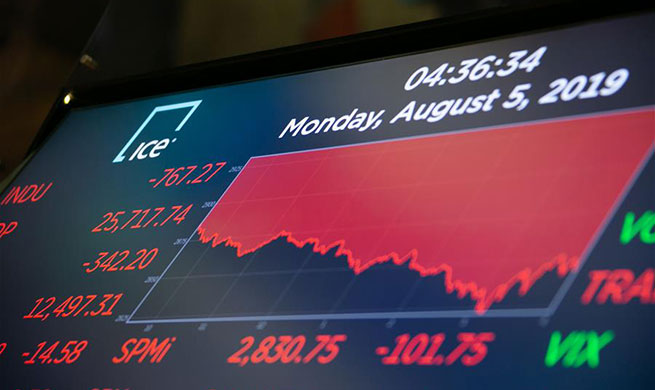BEIJING, Aug. 5 (Xinhua) -- Some U.S. politicians are overdrawing the nation's credit as breaking promises has become their signature move, according to experts with think tanks.
The United States once again broke its word by announcing the plan to impose an additional 10 percent in tariffs on 300 billion U.S. dollars worth of Chinese imports starting on Sept. 1.
Those who light the powder keg are bound to get burnt, said scholars and experts at a symposium held by the Renmin University of China (RUC) Monday.
"The U.S. side lacks sincerity in consultation and is used to exerting maximum pressure," said Yu Miaojie, deputy director of the National School of Development at Peking University.
"On the contrary to China's problem-solving stance, the U.S. holds an attitude of making trouble," said Cheng Dawei, a researcher with the National Academy of Development and Strategy, RUC.
China has always kept its word, and the country, based on market principles, has recently created favorable conditions for domestic companies to purchase U.S. agricultural products, Cheng said.
The flip-flopping has brought no benefit to the United States. The country's GDP growth slowed to 2.1 percent in the second quarter, down from the 3.1 percent of growth for the first quarter, latest data from the U.S. Commerce Department showed.
Consumer goods accounted for a considerable proportion in the United States' latest tariff threat against China. The tariff hikes would harm the interests of a vast number of American consumers if they take effect and trigger inflationary pressures in the country, said experts at the symposium.
"It is necessary to recognize the complexity and long-term nature of China-U.S. economic and trade frictions," said Huo Jianguo, vice chairman of the China Society for WTO Studies, adding that for the two largest economies in the world, the "decoupling" theory is unrealistic.
China should maintain a clear understanding and strategic determination by focusing on high-quality development, so as to stimulate market vitality and enhance economic resilience, according to the experts.












